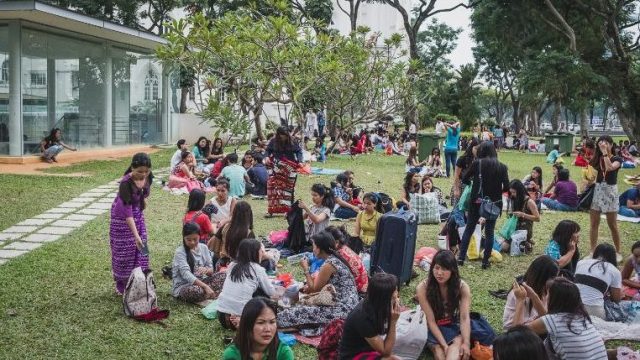A new report from Research Across Borders finds that 60% of domestic workers in Singapore say they have been exploited by their employers. Among the abuses were underpayment, no time off, and verbal and physical abuse.
The majority of migrant domestic workers in the country hail from Indonesia and the Philippines. In Singapore they are hired as domestic workers, tasked with housekeeping or taking care of children.
CNN reports that the survey interviewed 800 domestic workers and 80 employers.
If the survey is representative of Singapore as a whole, more than 140,000 maids in Singapore might be employed in exploitative conditions, the report said.At least 90% of the workers surveyed reported working excessive hours or days, while more than a third said they either had bad living conditions or low to no salary. Of those interviewed, 84% said they worked more than 12 hours a day and 41% said they were made to work on their single rest day.Some said they were forced to massage their employer. A third said they were monitored by surveillance cameras.
Singapore is second to Hong Kong in the number of foreign domestic workers employed in the country. However, unlike Hong Kong, Singapore does not guarantee a minimum wage for domestic workers and official guidelines for working limits are vague — they only recommend “a reasonable workload.” Furthermore, an employment contract is not mandatory when hiring a domestic worker, making it difficult for domestic workers to seek legal redress.
Singapore does require that employers give their domestic workers 1 day off per week — generally Sundays — but domestic workers interviewed told researchers that this isn’t truly a day off. “Sunday is our off days, meanwhile Sunday still normal day, need to work first, tidy the house, walk the dog out, prepare their breakfast, clean toilet first … then leave the house around 9 or 10 and must reach the house before 5 or 6 (at night),” said one worker.





Freedom United is interested in hearing from our community and welcomes relevant, informed comments, advice, and insights that advance the conversation around our campaigns and advocacy. We value inclusivity and respect within our community. To be approved, your comments should be civil.